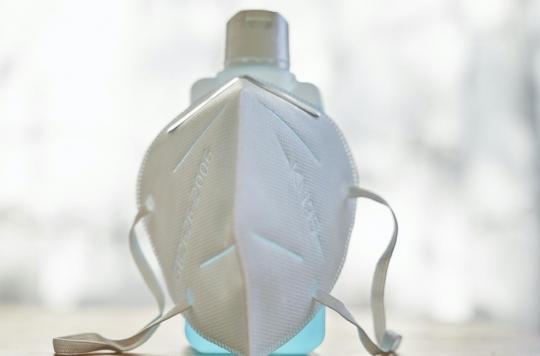The FFP2 and FFP3 masks, used by caregivers, are less suitable for the faces of women, a fortiori of Asian origin, and therefore less effective.

- Filtering masks can only provide good protection if they fit the shape of the individual’s face well.
- FFP2 and FFP3 masks are suitable for 95% of men and 85% of women.
- They only suit 60% of Asian women.
To fight against the spread of Covid-19, the mask is, along with physical distancing, an essential means. However, not all masks are suitable and certain factors can hinder its effectiveness, such as a beard which prevents it from playing its role as a filter. And Australian researchers suggest that FFP2 and FFP3 masks are less suitable for the faces of women but also Asians, limiting their effectiveness. The results of their work were published on September 15 in the journal Anesthesia.
A good adaptation protects better than a good filtration
To be fully effective, a mask must be perfectly glued to the face of the wearer. “Filtering masks can only provide good protection if they conform to the shape of the individual’s face, so that they fit tightly and do not let in unfiltered air.”, adds Britta von Ungern-Sternberg, lead author of the study and researcher at the University of Western Australia. This good adaptation to the face is more protective than its ability to filter droplets according to scientists.
The results of the study reported that the filter masks used by caregivers, such as the FFP2 and FFP3 and their Anglo-Saxon equivalents, the N95 and N99, are suitable for 95% of men but only 85% of women. They also analyzed their app by ethnicity and reveal that they go to 90% of people of Caucasian origin, compared to 84% of people of Asian origin. The proportion is particularly low, 60% on average, for Asian women. To reach these conclusions, the researchers examined several works carried out in different countries, even before the arrival of the pandemic and the extension of the wearing of masks to the civilian population.
Test masks before use
These results raise questions when, according to figures from several health authorities around the world, women represent approximately two-thirds of caregivers in many countries. The authors of the study advocate testing the masks on healthcare workers before use to test their effectiveness. An impossible maneuver, they note, in a pandemic period where time is lacking.

.















